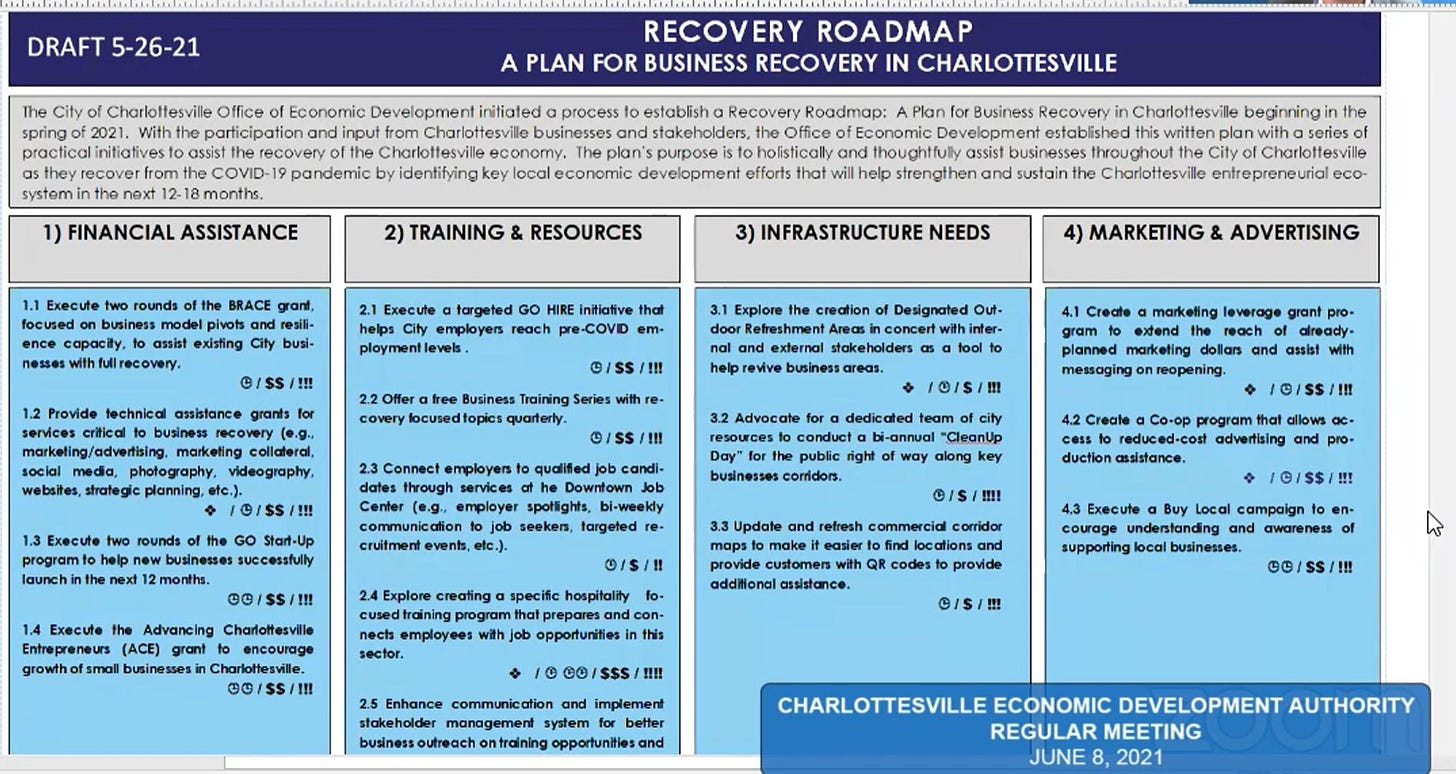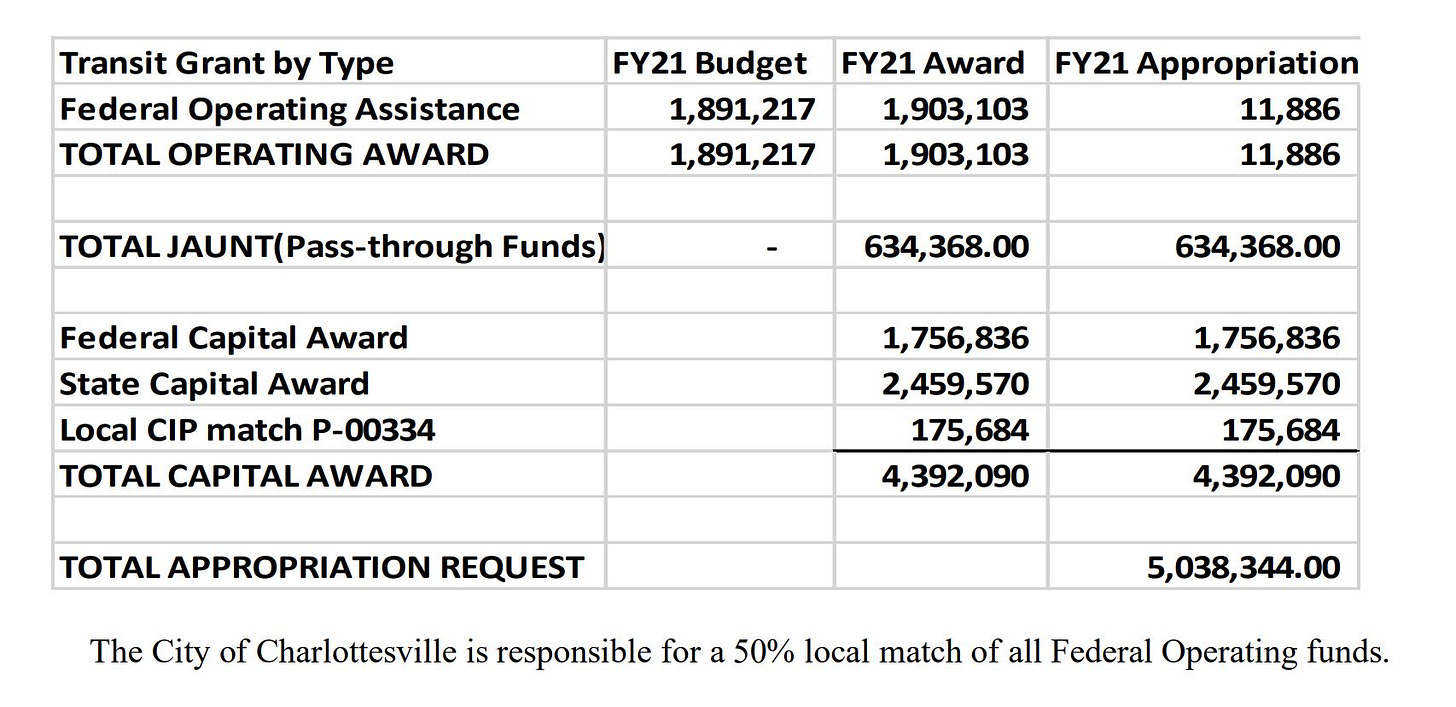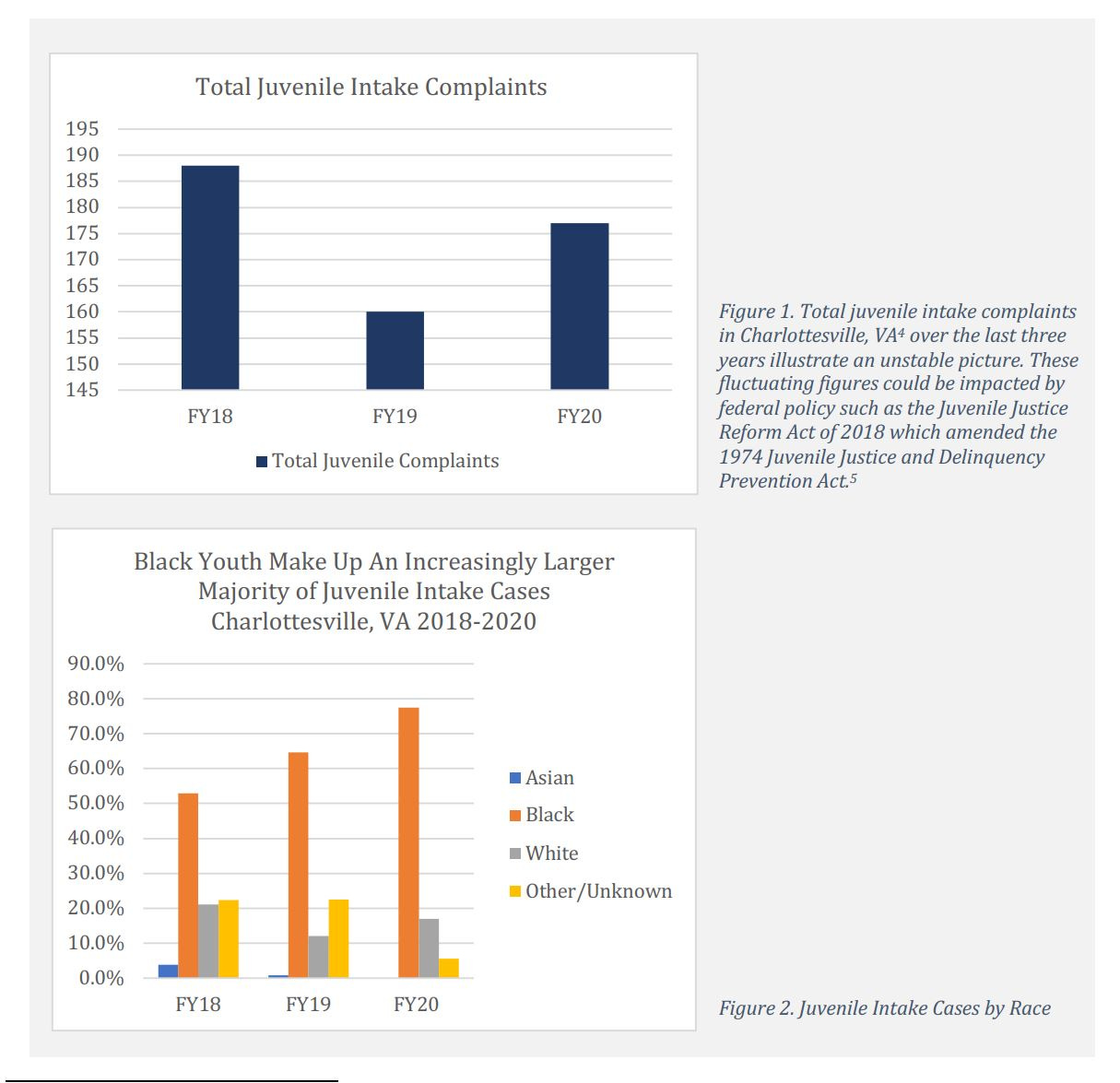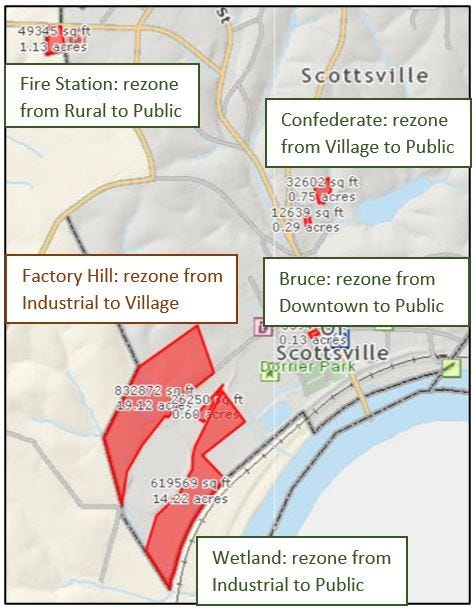Summertime, and the meetings are busy. This community seems to only take one week off each year from meetings, and this is not that week.
This newsletter started out two years ago with a focus on growth and development issues, reflecting a beat I’d had for a long while. Now it is crucial to also report on social issues, as there are so many problems that will never be solved without a greater public awareness of root causes. All these items are related, and the purpose of this weekly version of the newsletter is to make those connections.
Thanks as always to the Piedmont Environmental Council for their assistance in helping me produce this newsletter each week.
Monday, June 21, 2021
This year, the Charlottesville City Council adjusted their meeting schedule to add a work session slot at 4 p.m. at their second regular meeting to receive brief reports that would otherwise be heard late at night. As we will see for the next two Tuesdays, Council does hold longer work sessions when needed. This one begins with a financial report followed by a presentation from the Economic Development office on a Recovery Roadmap. (preview story)
“The plan’s purpose is to holistically and thoughtfully assist businesses throughout the City of Charlottesville as they recover from the COVID-19 pandemic by identifying key local economic development programs to strengthen and sustain the Charlottesville entrepreneurial ecosystem in the next 12-18 months,” reads the staff report for the roadmap.
The plan calls for additional grant funding to businesses through the Building Resilience Among Charlottesville Entrepreneurs (BRACE) and the Advancing Charlottesville Entrepreneurs (ACE) programs. Another idea is the creation of “Designated Outdoor Refreshment Areas” (DORA) where alcohol could be consumed.
“In Canton, Ohio, Downtown Louisville’s DORA went into effect in September 2020 and offers visitors the opportunity to purchase a DORA beverage one cup at a time from one of their five participating establishments and carry the beverage anywhere within the properly-designated and signed area,” reads the roadmap.

Council’s regular session begins at 6:30 p.m. There is one public hearing and three appropriations. (meeting info)
The public hearing is for a lease extension for the Virginia Discovery Museum which was originally established in 1981 on the Charlottesville Downtown Mall. The rent has been increased to $3,900 a year.
“The City’s offer of a low cost property lease was essential to getting the Museum off the ground, and to ensuring that it remains an inexpensive place for generations of children to discover the historical and natural world around them,” reads the staff report.
The first appropriation is for just over $5 million in state and federal funding for Charlottesville Area Transit. Over $4.3 million would be used for the purchase of 11 buses, automatic passenger counters, and other equipment to support regular service. Another $634,368 from this grant passes through to Jaunt.
This funding comes at a time when CAT is planning to adjust its routes. That will require approval by City Council. They held a work session on the changes in May, and I wrote about that at the time. There’s a second work session on this topic scheduled for June 29 at 2 p.m.

The next two appropriations relate to two separate requests from the Conscious Capitalist Foundation for their Rehabilitating Juvenile Justice Initiative. In April, the group requested funding for their Peace in the Streets program, which seeks to prevent gun violence.
“Conscious Capitalist Foundation uses an approach to mentoring using ‘credible messengers — people who use their lived experience,” reads the staff report.
The request was for $145,000, but staff is recommending only appropriating $50,000 at this time because city policy is to restrict off-cycle requests to that amount. If Council choose to grant the full request, the amount is available in the city’s Equity Fund and the City Council Strategic Initiatives Fund.
The second request from the Conscious Capitalist Foundation is for $203,500 for “intensive mentoring and support” for between up to 50 people referred to the program by the Lugo-McGinness Academy.
“This initiative will deploy a systemic approach to reengineering our City’s juvenile justice infrastructure by working across organizational partners to push juvenile probation policy therapeutic mentoring in schools and residential facilities, as well as running youth entrepreneurship training,” reads the Foundation’s request.
As with the first request, staff is only recommending the appropriation of $50,000 at this time due to the city’s off-cycle budget request policy. In their narrative, the Foundation makes the case for city funding.
“In the 2020 fiscal year, Black youth accounted for almost 80% of cases, demonstrating a pressing need for support in areas the City has yet to holistically tackle,” reads the narrative.

On the consent agenda:
- First reading of a transfer of $44,718 in funds to the Local Energy Alliance Program (LEAP) as well as a Memorandum of Understanding between the city and LEAP (staff report)
- Approval of an amendment to HOME funding use by Albemarle Housing Improvement Program (AHIP) (staff report)
- First reading of an appropriation of $201,120 in state funding for the COVID Homelessness Emergency Response Program (CHERP) for rapid rehousing and other programs (staff report)
- First reading of an appropriation of $343,371 in grant funding from the Virginia Department of Criminal Justice Services for the Department of Human Services’ Evergreen Program for “trauma-informed for victims within schools” (staff report)
- First reading of $827,973 in additional federal grant funding for expanded services of the Charlottesville Albemarle Family Treatment Court (staff report)
- First reading of a $100,000 grant from the Virginia Department of Criminal Justice to pay for data licensing fees for record retention of footage from police body cameras (staff report)
- First and only reading of donation of a 1948 fire truck to the Charlottesville Professional Firefighters Association (staff report)
- Second reading of a $9,453 grant from the Virginia Department of Vehicles to the Police Department for additional patrols related to speeding and seat-belt enforcement (staff report)
- Second reading of $23,056 from the Edward Byrne Memorial Justice Assistance Grant to install additional security checkpoints at the police station (staff report)
- Second reading of an ordinance change to no longer require e-bike owners to purchase a license (staff report)
- Second reading of new utility rates for FY22 (staff report)
Places29-Hydraulic CAC to review crime statistics, get climate change update
Albemarle has seven Community Advisory Committees, and each has a differing style. The Places29-Hydraulic CAC tends to be the one most committed to being a forum for what’s happening within its boundaries. The June meeting is no exception.
First, one of Albemarle’s crime analysts will provide an update on crime statistics in the Hydraulic area. Next they’ll get a presentation on “Growth Management Policy Overview & Connections to Climate Action Planning” from the county’s new Climate Protection Manager. There will be an update from the manager of Stonefield. (meeting info)
Scottsville Town Council to hold joint meeting with Planning Commission
Scottsville is Albemarle County’s only official town. Today’s joint meeting with the Planning Commission is a sign that the town government is planning to accommodate more people within its 1.54 square miles. The hybrid meeting begins at 7 p.m. (agenda)
On the docket for this joint meeting are six rezonings.
- A request to rezone 19 acres on Bird Street from Industrial to the Village Residential category. This category is only available in Albemarle villages and the one town.
- A request for 14 acres of wetland on Bird Street to go from Industrial to Public.
- Two of the requests are for two lots owned by the Town on Confederate Street to be rezoned from Village Residential to Public.
- A request to rezone the lot where the Scottsville Volunteer Fire Department is from Village Residential to Public.
- A request for Bruce Park, owned by the town, to be rezoned from Downtown Residential to Public.
The Town Council will then take up a special use permit for upper level apartments at 317 East Main Street.
“It’s an adaptive re-use of a building, positioned to attract new residents in underrepresented population segments, primarily young professionals without children who commute to work,” reads the application from TWS Properties.
Also on the agenda is a rezoning for changes to the zoning ordinance. These include:
- Language about promoting the creation and preservation of affordable housing
- Definitions of accessory dwelling units, quadraplexes, and triplexes
- Reductions of minimum lot sizes and setbacks for clustered units on public water and sewer (details)
In other meetings:
- The Albemarle County Architectural Review Board will meet at 1 p.m. The lone item on the agenda is a review of a new two-story building on Crozet Avenue to house Crozet Animal Wellness. (meeting info)
- The Louisa County Board of Supervisors meets at 6 p.m. in open session. Check out Tammy Purcell’s Engage Louisa newsletter for more information! (meeting info)
Tuesday, June 22, 2021
Charlottesville City Council begins a work session at 3 p.m. on the Vibrant Community Fund, a relatively new review process for funding requests from nonprofit agencies. Take a look at the report for the fiscal year that begins on July 1. Applications this year ranged from the Albemarle Housing Improvement Program (AHIP) to the Virginia Film Festival. The applications are ranked according to how well they meet needs identified by the city. (meeting info)
The agenda for the meeting includes a discussion of “Opportunities for Improvement and Points of Tension.” One item on a bulleted list is the discussion of out of cycle budget requests.

In other meetings:
- The Albemarle Planning Commission meets at 6 p.m. On the agenda is a work session on the Crozet Master Plan. The next installment of the Charlottesville Comunity Engagement newsletter will have more information about this meeting. (meeting info)
- The Rivanna Water and Sewer Authority’s Board of Directors meets virtually at 2:15 p.m. On the agenda are presentations on cyber security, the status of various Water Protection Permits, and emerging resolutions in water and wastewater. (meeting info)
- The Greene County Board of Supervisors meets at 6:30 p.m. The agenda includes an update on how Greene will use American Recovery Program funds, sale of $4.2 million in water and sewer bonds, and a resolution to confirm necessity of an emergency communications tower at the Sheriff’s office. (meeting info)
Wednesday, June 23, 2021
Two regional meetings will be held today and they are intrinsically related. First, the Central Virginia Regional Housing Partnership meets at 2 p.m to review the draft of a Regional Housing Plan. (agenda packet)
The plan paints a picture of a community in crisis.
“Rising rents, increased development pressure and displacement concerns, inequity, brought on by a history of segregationist land use policies, such as red-lining and racial covenants that have eroded access to wealth-building for many communities of color, and an imbalance of supply and demand have come together to exacerbate the problem,” reads the executive summary. “Currently, 10,400 of the region’s households pay more than 50% of their monthly income towards housing costs.”
The report is four years in the making and identifies conditions and recommendations of strategies for each locality. Some excerpts:
Albemarle:
“Albemarle’s high quality of life attracts new residents and population is expected to grow one percent annually. This will have impacts on the availability of access to affordable housing as housing development has not kept pace with demand. As the county looks to update its policy tools that guide development, opportunities exist to re-examine community need and foster mindful growth that is both equitable and accessible to all Albemarle County residents.”
Charlottesville:
“The City’s median home value of $299,600 and median sale price of $337,000 are the second highest in Planning District 10, surpassed only by Albemarle County. As demand increases, many generational residents and residents of color fear displacement and gentrification as home values continue to rise. Recent planning efforts undertaken by the City, such as its Affordable Housing Plan, the Strategic Investment Area Plan, and the Cherry Avenue Small Area Plan have aimed to look at equitable solutions for affordably housing the City’s residents.”
Fluvanna:
“Fluvanna County will experience growing pains. Therefore, as it grows, it will need to address barriers to county-wide access to broadband, transportation accessibility, increased development, and preservation of its rural character… Attention has to be paid to offering residents opportunities to age in place or find comfortable living situations within the County. Although attention to the retiree population is important, the needs of residents across the spectrum to support current and growing needs of homebuyers, homeowners—that includes home and financial literacy programs—and the construction of affordable rental units will have to be addressed.”
Greene:
“Roughly 6,700 working aged residents of Greene County commute outside of the county for work, with the majority traveling south towards Albemarle County and the City of Charlottesville where large employment centers are located. Longer commute times and increased transportation costs can erode some of the cost savings afforded by Greene County. As new development and investment comes to Greene, opportunities exist to try and capture some of those out-commuters and reduce their transportation costs. The increased availability of broadband access and telecommuting availability may also decrease the need to regularly commute into the urbanized areas, further reducing transportation costs and increasing affordability.”
Louisa:
“As the eight designated growth areas of Louisa County develop, so does the need to address specific barriers such as county-wide broadband access, increased transportation accessibility, and equal attention to increased development and rural preservation. Louisa in past decades has attracted many retirees, and some focus needs to be given to homes and services that allow people to retire within their current homes or within the community. Expanding the inventory to meet various current and potential residential needs across the spectrum and support for homebuyer education and home owner literacy are some needs residents desired and will need to be addressed going forward.”
Nelson:
“With Nelson County’s economic success comes the need to address certain challenges such as increased demand on the transportation network, access to reliable broadband, and balancing development demand with preservation efforts to maintain rural landscapes. The characteristics that make Nelson so special attract new residents, and community members expressed concerns over the lack of inventory, both in the rental and buyer markets, to meet the current demand for housing. Along with a lack of inventory, other factors such as zoning and land use policies that are inconsistent with the community’s desire for mixed-use and higher density, an aging housing stock, and barriers to creating new units were all cited as pressing affordable housing issues in Nelson County.”
Soon after that meeting ends, the second regional government meeting takes place, though only Albemarle and Charlottesville currently participate. The May meeting of the Charlottesville-Albemarle Metropolitan Planning Organization policy board was largely postponed. Most of that business has been transferred to a virtual meeting that begins today at 4 p.m. (agenda and packet)
The Board will also vote on resolutions for funding applications for three projects:
- Charlottesville seeks support for a Transportation Alternatives grant from VDOT for the Meadow Creek Trail and Bridge project (memo)
- Charlottesville seeks support for funding for implementation of the Safe Routes to School program (memo)
- Thomas Jefferson Planning District Commission seeks support for federal planning grant for the future of Charlottesville’s Union Station on West Main street (resolution)
Other business on the agenda includes: an update on the public participation plan that will be voted on at the July 28 meeting (draft Engagement Plan); potential candidates for Smart Scale Round 5 (memo); a VDOT update on projects in the pipeline; and a needs assessment for charging stations for electric vehicles.
In other meetings:
- The Albemarle Broadband Authority meets at 5 p.m. (meeting info)
- The Nelson County Planning Commission will meet at 7 p.m. (meeting info)
- The Greene County Board of Zoning Appeals will meet at 7:30 p.m. (meeting page)
Thursday, June 24, 2021
The regional advisory body for transit issues meets at 4 p.m. After the public comment period, the meeting begins with a member spotlight on the University Transit Service and pupil transportation for Albemarle County Public Schools. There will be updates on Try Transit Week, the Equitable Driver Appreciation Project, and updates from all of the providers. (meeting info)
In the other known meeting at publication time, the Charlottesville Tree Commission will meet virtually at 10 a.m. There was no agenda when this was initially posted. (meeting info)
This post was contributed by Sean Tubbs. Sean is a journalist working to build a new information and news outlet centered around Charlottesville and Virginia. In 2020, he launched a daily newscast and newsletter and also created a semi-regular podcast on the pandemic.
Support for Sean’s “Week Ahead” update comes from The Piedmont Environmental Council.

